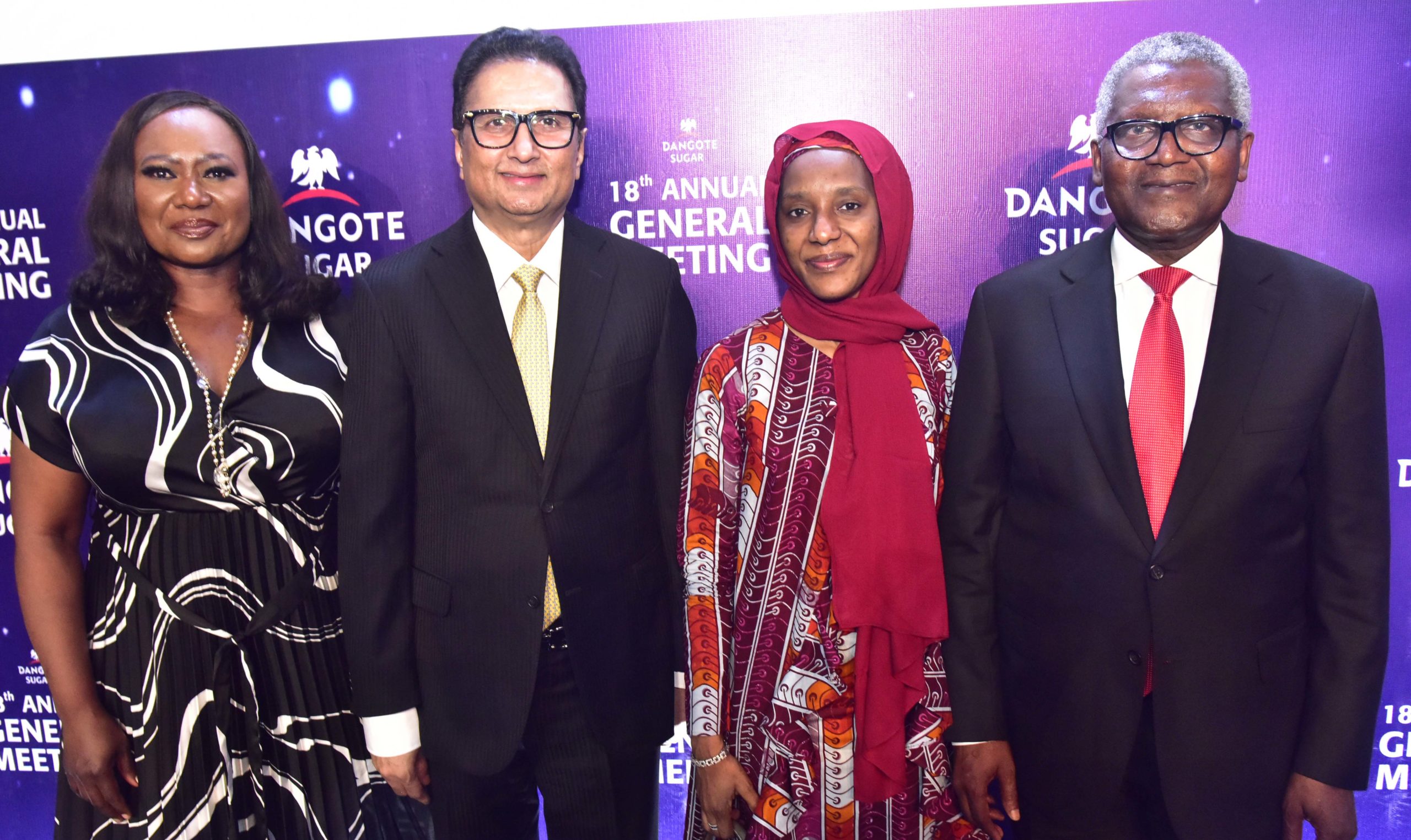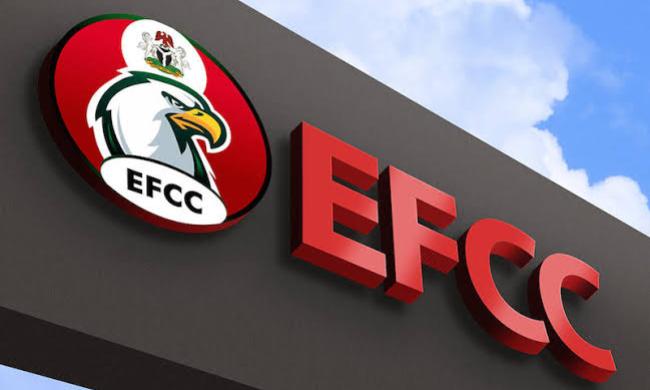Business
NCDMB To Host 4th Nigerian Oil And Gas Opportunity Fair

Modupe Asudo
The Nigerian Content Development and Monitoring Board (NCDMB) has announced plans to organize the 4th edition of the Nigerian Oil and Gas Opportunity Fair (NOGOF), with the theme “The oil and gas industry- catalyst and fuel for the industrialisation of Nigeria.”
After being held virtually in May 2021 in a bid to curtail the spread of COVID-19 pandemic, the biennial event is set to return to the NCDMB Conference Center in Yenagoa, Bayelsa State from the 17th to 19th May 2023, and would showcase the various opportunities that exist in the Nigerian oil and gas industry.
The event which was introduced by the Engr. Simbi Kesiye Wabote led NCDMB in 2017, with the inaugural edition held at Uyo, Akwa Ibom State has consistently showcased short to medium term plans and activities of operators and project promoters in the upstream, midstream, and downstream sectors of the Nigerian Oil and Gas industry.
The NCDMB Chief Executive had previously explained that the showcase of upcoming projects is intended to give Nigerian service companies ample opportunity to build relevant capacities that might be required to execute the projects in-country, thereby creating employment opportunities, and retaining spend in-country.
The goal he added, is also to reassure stakeholders of the industry that opportunities still abound in the Nigerian oil and gas industry and encourage them to look forward and invest in the sector, despite concerns about energy transition and other emerging developments in the global oil and gas industry.
The event which is managed by Jake Riley Ltd promises to have a greater impact this year and the agenda would focus on industry linkages as well as opportunities within the African continent. The event promises to showcase opportunities that exist in the industry over the next three to five years and presentation will be made by over 20 international and indigenous oil and gas companies.
Some of the topics that will be discussed at NOGOF 2023 will include upstream opportunities, linkage industry opportunities, gas and downstream opportunities, financing and investment, environmental, social and government (ESG) and sustainable and regional opportunities with members of the African Petroleum Producers Organisation, (APPO). Other topics will include topical and challenging issues currently facing the oil and gas industry, with the goal of finding lasting solutions in the industry.
The event will be attended by both government and private organisations, which would come from international and indigenous oil and gas companies, federal government agencies, financial sector and linkage industries.
The event will begin with registration of guests on the 17th May, and the day will close with a networking cocktail. The second day will feature the opening ceremony and would have speeches, goodwill messages and addresses from leaders of the industry and the host governor.
The event will continue with presentations from operating companies, international finance institutions, key players in the industry and relevant government institutions. Delegates at the event will be entertained with performances from A-list musicians at the gala and award night that would hold in the evening of Thursday, 18th May.
The event would end on Friday evening with presentations, technical and opportunity sessions and would have other activities like exhibitions and opportunities for meetings by interested companies and individuals.
Business
Backward Integration: Dangote Targets 700,000MT Of Refined Sugar In Four Years

. . . As Q1 Revenue Rise By 20.1% To N122.7bn
The Dangote Sugar Refinery Plc (DSR) has unveiled plans to produce 700,000 metric tonnes of refined sugar from locally grown sugarcane in the next four years, through its Backward Integration Programme (BIP).
Chairman, DSR, Aliko Dangote made the disclosure at the company’s 18th Annual General Meeting (AGM) on Tuesday, in Lagos.
The AGM coincided with the Nigerian Exchange (NGX) releasing the company’s first-quarter result for 2024, which indicated an increase of 20.1 percent in its revenue to N122.7 billion.
According to Dangote, in alignment with the Federal Government of Nigeria’s policy guidelines, DSR continues to focus on and enhance its Backward Integration Project (BIP) by deploying and reviewing project strategies to ensure efficient delivery.
He noted that the 700,000 metric tonnes would meet 50 percent of the current market demand for refined sugar.
He added that the 10-year sugar development plan to produce 1.5 million MT of sugar per annum from locally grown sugarcane remains a germane roadmap to the attainment of the company’s objectives.
He said, “Our focus is on achieving the revised targets set for DSR Numan Operations, Dangote Adamawa Sugar Limited, and Nasarawa Sugar Company Limited, while we are hopeful that the Taraba State Government will resolve the community payment issues that have led to the stoppage of activities at the Dangote Taraba Sugar Limited, Lau/Tau project.”
Dangote pointed out that “…During the year under review, despite the challenges we were faced with, the company significantly scaled up investment in the Backward Integration Projects with the ongoing expansion of the DSR Numan factory refining capacity from 3,000TCD to 9,800TCD year-end.
“The factory will be increased with an additional 5,200TCD to 15,000 TCD (tonnes of cane crushed per day) eventually to meet the need in view of the massive land development activities also going on at the site. The aim is to achieve 24,200 hectares in total by the year 2029.”
He also emphasised that despite the adverse impact on the business environment by the continuous increase in the inflationary trend, lack of liquidity and FX to fund the company’s equipment import among others for the backward integration projects, concerted efforts are ongoing to secure the needed funds for the development of the Nasarawa Sugar Company Limited project at Tunga in Awe Local Government Area of the state.
“This will enable the company to put in place the needed infrastructure for the eventual commencement of full-scale production and ensure that the Dangote Sugar Backward Integration ‘Sugar for Nigeria Project’ is achieved. In the end, over $700 million investment would be committed to the Backward Integration Programme,” he added.
Dangote said that the Dangote Sugar (Ghana) Limited, was established as a subsidiary of the Company during the year under review, in line with the plan to expand its presence in the sugar industry across Africa.
On outlook, he stated that “achievement of the goals of the Sugar Backward Integration Master Plan remains our focus. This will go a long way in delivering the anticipated benefits, especially in FX savings and cushioning its impact on our operations amongst other benefits to the company, all stakeholders, and the nation.”
Group Managing Director/CEO, Dangote Sugar, Ravindra Singhvi said, “Despite these challenges, we are resolute and focused on the delivery of our business targets in the medium to long term.”
He pointed out that “as we continue to navigate through the scarcity and high cost of foreign exchange, escalating costs of raw materials amongst others, our focus is to enhance the effectiveness of our supply chain processes, optimise cost, improve our operational efficiencies and delivery on our Sugar for Nigeria backward integration project.”
In addition, Singhvi pointed out that, “the target is to produce a minimum of 1.5MT refined sugar annually from locally produced sugarcane at our integrated sugar production estates, which is expected to alleviate some pressure on costs and our demand for foreign currency.
“Achievement of a sustainable business remains one of our key strategies and concerted efforts were made towards sustaining the achievements we have recorded in the past.”
Business
FX Manipulation: EFCC Gets Court Order To Freeze 1146 Suspicious Accounts

Justice Emeka Nwite of the Federal High Court Abuja, on Wednesday 24, April, 2024 granted the Economic and Financial Crimes Commission, EFCC, an interim order to freeze One Thousand, One Hundred and Forty Six (1,146) bank accounts belonging to individuals and companies being investigated for alleged offences bordering on unauthorized dealing in forex exchange, money laundering and terrorism financing.
The judge ordered that the accounts be frozen “pending conclusion of investigation.”
While ruling on a motion moved by the EFCC counsel, Ekele Iheanacho, the judge stated “that an order of this honorable court is hereby made freezing the bank accounts stated in the schedule below which accounts are owned by various individuals who are currently being investigated in a case involving the offences of unauthorized dealing in foreign exchange, money laundering and terrorism financing to the extent that the investigation will be for a period of 90 (ninety) days.”
The judge added “that preliminary investigation conducted thus far reveals that the bank accounts are linked to persons who take advantage of the virtual cryptocurrency exchange platforms to illegally manipulate the value of naira and laundering proceeds of unlawful activities.”
The judge further stated that there was need to preserve the funds in the identified bank accounts pending conclusion of investigation and possible prosecution.
Justice Nwite adjourned the matter to July 23, 2024, for mention.
Companies affected by the freezing order range from entities involved in agri-businesses, logistics and haulage, microfinance banks, engineering, among others.
Business
CBN Orders OPay, Palmpay, Others To Halt New Customer Registration
In a significant development, the Central Bank of Nigeria (CBN) has directed four prominent fintech firms, namely Opay, Palmpay, Kuda Bank, and Moniepoint, to suspend the onboarding of new customers until further notice.
This move follows the CBN’s recent mandate for all financial institutions to collect ID cards before opening financial accounts, contradicting a 2013 rule aimed at promoting financial inclusion, which allowed Nigerians to open accounts without identity cards.
Additionally, the Nigeria Inter-Bank Settlement System (NIBSS) has urged banks and mobile money operators to remove unlicensed fintechs from directly accepting consumer deposits.
A fintech company affected by this directive confirmed the instruction from the CBN, as indicated on its website.
The notice reads, “We’ve temporarily paused new signups on our platform. This means that you’ll be unable to open a new account at the moment. We apologise for any inconvenience this may cause.”
Amidst reports connecting the Central Bank of Nigeria’s (CBN) recent directive to suspicions of illegal forex activities, an anonymous source emphasized the importance for fintech companies to enhance their relationship with regulatory authorities.
The source said “Most of the fraud cases are carried out in the traditional banks. Why is CBN always after Fintech company? I think Fintech companies would need to sit down to educate the regulators on how they operate.”









